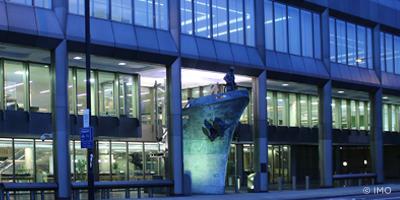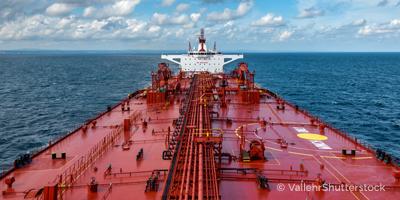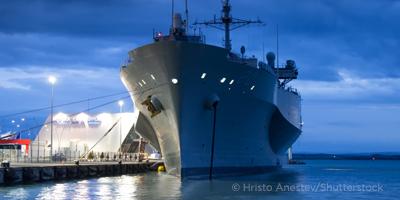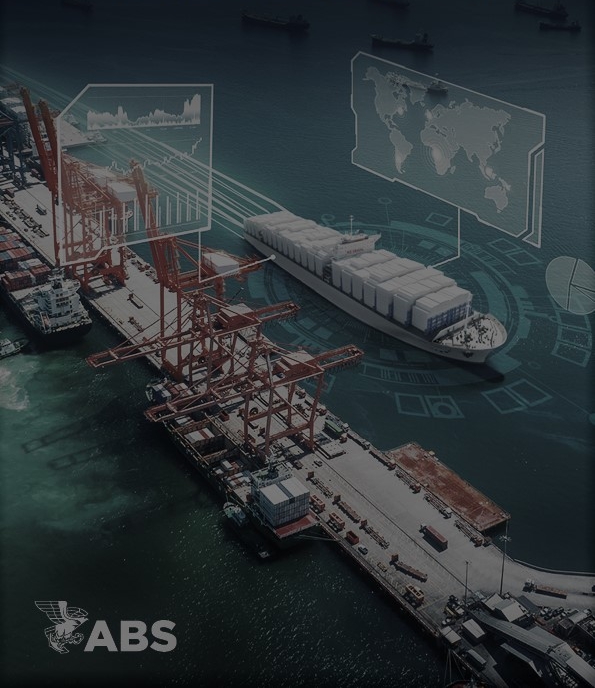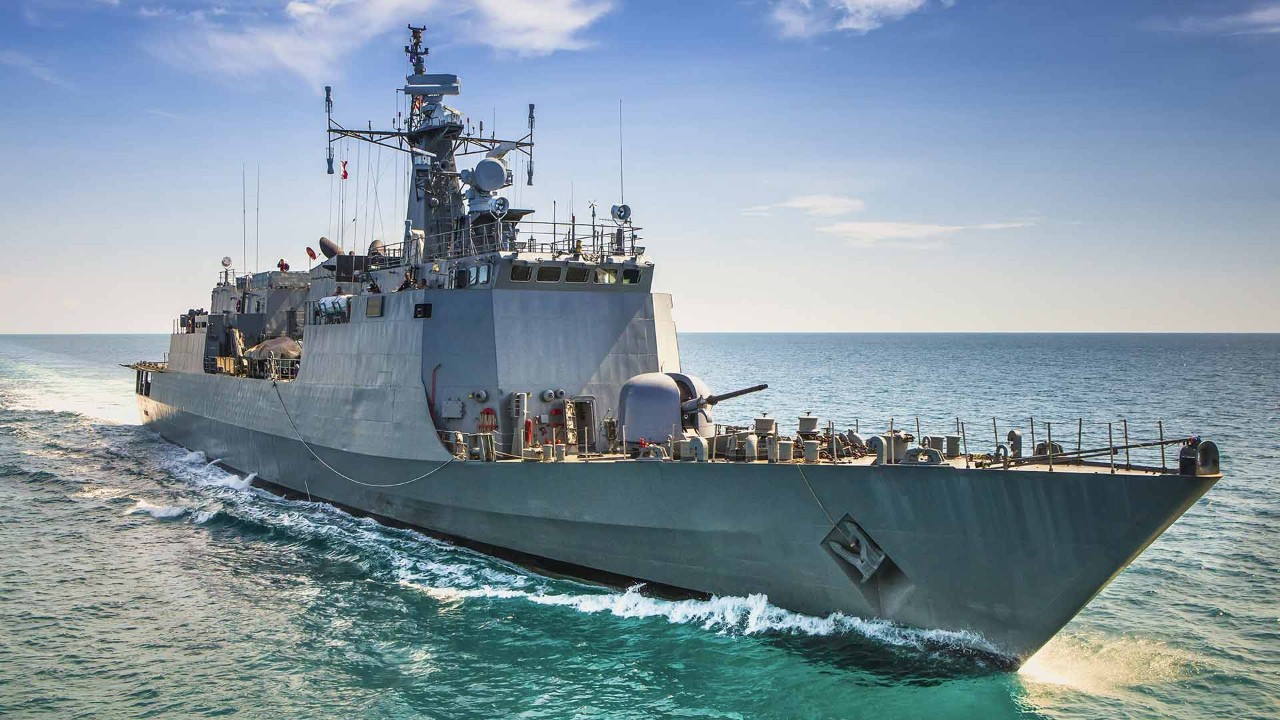In addition to Naval Ship Code compliance, ABS has developed Rules and Guides specifically for naval ships, based on their unique design, structure and purpose. ABS Rules and Guides for Naval Ships include:
- International Naval Ship Guide
- Light Warships, Patrol and High-Speed Naval Craft Vessels
While not unique to naval ships, ABS Marine Vessel Rules can be applied to some government support vessels.
Guidance for International Naval Ships
The ABS Guide for Building and Classing International Naval Ships (INSG) provides notations for non-nuclear displacement type monohull surface ships. It addresses hull, mechanical and electrical systems specifically adapted to combatant and noncombatant vessel requirements in areas such as:
- Survivability
- Mission and system requirements and interfaces
- Interpretations of statutory requirements
To see the ABS International Naval Ship rules and available notations, download the guides.
Rules for Light Warships, Patrol and High-Speed Naval Craft Vessels (LHSNV Rules)
The LHSNV rules recognize military use and specific design features while maintaining a basis in commercial design standards.
The rules provide requirements and standards for light warships, patrol and high-speed naval crafts on the following:
- Materials and Welding
- Hull Construction and Equipment
- Vessel Systems and Machinery
- Survey After Construction
Requirements have been specifically developed for highspeed vessels (i.e. light structures), which are often constructed of steel, aluminum or composites. Typical high-speed vessels include:
- Offshore patrol boats
- High-speed transports
- Small coastal patrol crafts
To see the rules and available notations, download the guides.
What is the Naval Ship Code?
The Naval Ship Code, published by NATO as Allied Naval Engineering Publication (ANEP 77), allows for an internationally accepted safety standard—benchmarked against IMO conventions and resolutions—to be applied to Naval Surface Combatant and Noncombatant vessels. The Naval Ship Code determines a minimum level of safety for naval vessels.
The Naval Ship Code is applicable to all non-nuclear surface ships belonging to or operated by the armed forces, coast guard, other protection and security department or agency of a State. It does not include measures specifically designed to address the effects of military attack.
How Can ABS Help?
ABS has surveyors, engineers, researchers and regulatory specialists operating from more than 200 offices in 70 countries around the world. A dedicated Naval Engineering Office in Houston and vast experience with government ships worldwide makes ABS the ideal partner for classification, certification and related services. For more information or help with your vessel, contact the ABS Government Team.




